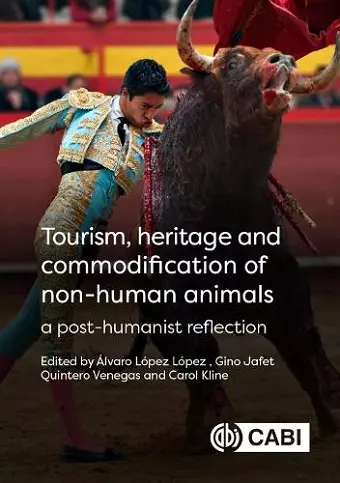Tourism, Heritage and Commodification of Non-human Animals
A Posthumanist Reflection
Carol Kline editor Dr Álvaro López-López editor Dr Gino Jafet Quintero Venegas editor
Format:Hardback
Publisher:CABI Publishing
Published:19th Dec '23
Should be back in stock very soon

Non-human animals are present in various heritage and tourist environments: they may be the heritage focus of interest or it may be that they are agents involved in heritage tourist setting working. From a posthumanist perspective the involvement of non-human animals as heritage elements implies their commodification and zooslavery.Heritage is a social construction rooted in modern and contemporary societies. It is commonly a positive assessment of many elements of the physical and human environment (e.g. ecosystems and landscapes, monuments, customs, gender norms, religious practices, gastronomy, and livelihoods). Heritage and tourism are strongly related to each other in that heritage gives rise to tourist attractions and activities, and tourism enhances the designation of heritage sites. Non-human animals (hereafter 'animals') are present as implicit or explicit heritage elements through multiple tourist environments: animals may be themselves the heritage focus of tourist interest (visual arts, gastronomy, as charismatic and distinguished beings, as part of festivities or rituals), or it may be that animals are agents involved in heritage tourist environments such as working animals or in recreational activities. A post-humanist perspective the moral valuation of equality between humans and other animals demands that both are sentient beings and self-aware of their pain and pleasure. Thus, the involvement of animals as heritage elements by themselves or as an element of tourist consumption in heritage sites implies their commodification and lack of agency. As such, these practices are usually unethical, since they threaten the animals' primary interests: not to suffer, not to feel pain and to be able to live their freedom. This book contains chapters that reveal both the unethical interactions between humans and animals within heritage tourism, and those that show experiences in which efforts are made to minimize damage within the commercialization of animals involved as heritage themselves. It will be of interest to postgraduate students, academics, NGOs and tourism planners.
ISBN: 9781800623286
Dimensions: unknown
Weight: unknown
208 pages